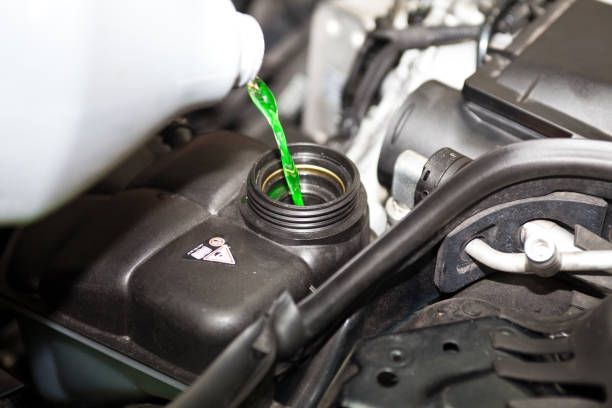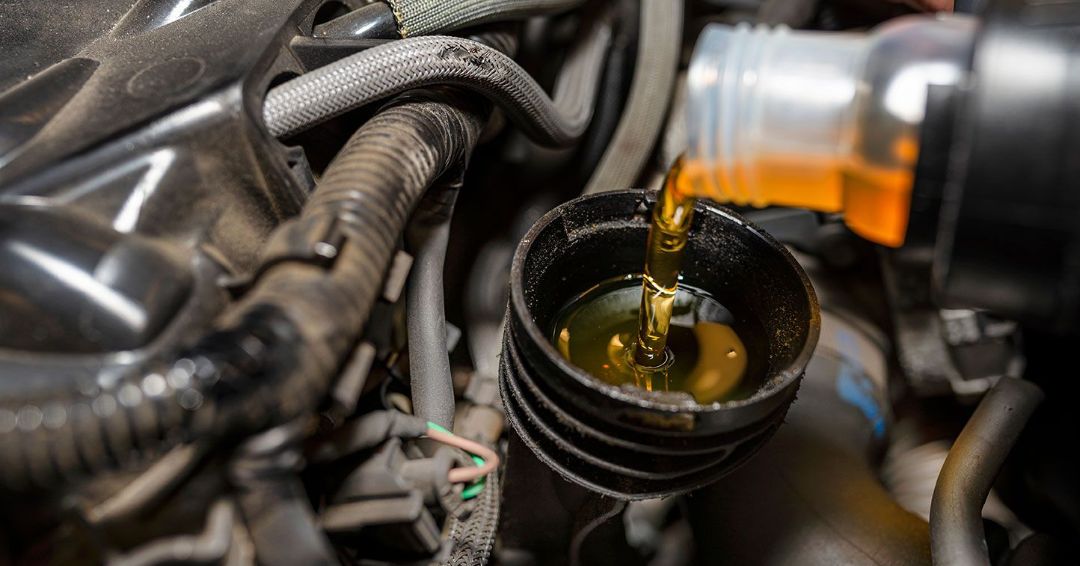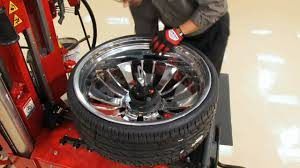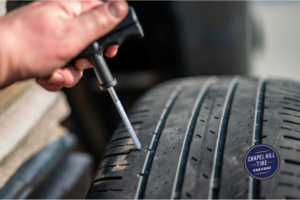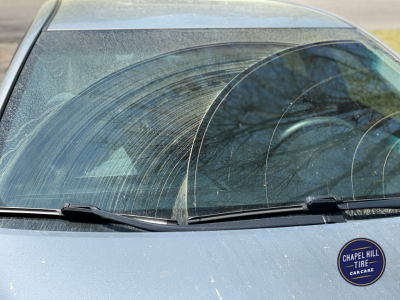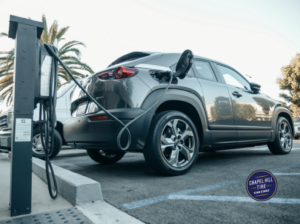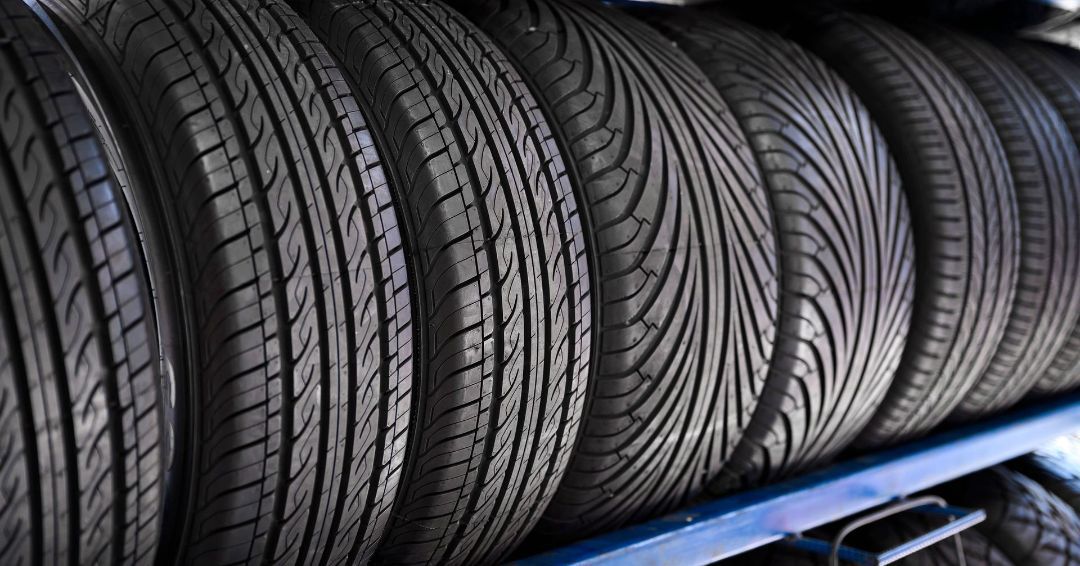5 Reasons Why Your Steering Wheel May Be Shaking
Auto Shops Located in: Chapel Hill, Durham, Taleigh, Apex, and Cary North Carolina

Have you ever experienced the unsettling feeling of your steering wheel moving on its own? Perhaps it is vibrating, shaking, or pulling on the road? Unless you have a new “self-driving” car, steering wheel movement is often the sign of an issue with your vehicle—often relating to your tires or brakes. Ignoring steering wheel vibrations can allow these underlying issues to grow into larger problems for your car. So why is your steering wheel shaking? The experts at Chapel Hill Tire are here with 5 potential causes and their solutions.
Shaking Steering Wheel Problem 1: Warped Brake Rotors
Have you noticed your steering wheel shaking when you slow or stop your vehicle? This could be a sign of warped brake rotors. Your brake rotors are the smooth, flat surface that your brake pads press against to slow or stop your movement. The friction between the brake pads and brake rotors generates heat, which makes the metal of your rotors malleable. Over time, this pressure can bend your rotors—especially without maintaining proper brake pad replacements.
When your rotors become bent, the brake pads will press against an uneven surface when braking, which creates steering wheel shaking. Thankfully, this can be fixed with a set of brake rotor replacements. If you catch this issue early enough, your mechanic may even be able to resurface your rotors to make them smooth and even again. However, if you are already noticing symptoms of bending—such as the steering wheel shaking—this repair is unlikely.
Shaking Steering Wheel Problem 2: Tire Alignment Troubles
Your vehicle’s suspension system is designed to align your tires, helping them evenly meet the road’s pavement. Over time, road turbulence, rough driving, and other hazards can throw off this alignment—causing one or more of your wheels to rest at a skewed angle. Even slight alignment issues can cause steering wheel shaking or vibrations.
In addition to steering wheel shaking, wheel alignment troubles can cause uneven and accelerated wear on your tires. A quick wheel alignment service can address this issue and its symptoms. If you are unsure whether or not you need an alignment service, bring your vehicle in for a free alignment inspection.
Steering wheel shaking? Get a free wheel alignment or brake inspection at Chapel Hill Tire today.
Shaking Steering Wheel Problem 3: Tire Balancing Troubles
All four of your tires are meant to rotate at the same speed, which is made possible by keeping them in balance. However, tires become unbalanced with seasonal changes, rough driving patterns, poor road conditions, inflation differences, and more. Unbalanced tires can impact your suspension and axle, which leads to steering wheel vibrations. This issue can be repaired (or prevented) with a routine tire balancing service. On average, your tires should be balanced every 10,000-12,000 miles.
Shaking Steering Wheel Problem 4: Sticking Brake Caliper
One unusual cause of steering wheel shaking is stuck brake calipers. Your brake calipers hold your brake pads, lowering them each time you slow or stop your vehicle. While it is uncommon, brake calipers can become seized (also called “sticky” or “stuck”). Seized brake calipers can cause handling trouble—often with steering wheel shaking or pulling. Unlike warped rotors, you will notice this issue when you drive rather than when you brake.
What is a stuck brake caliper? As the name suggests, this is when your caliper becomes “stuck” to your rotor. Instead of lifting when you take your foot off the brake, your brake will stay brushed up against your rotor—almost as if you have your brake slightly pressed while you drive. Naturally, driving with stuck calipers can be challenging—not to mention bad for your vehicle’s engine, braking system, fuel economy, tires, and more.
Sticking brake calipers are commonly caused by worn hoses, debris buildup, and DIY brake installation, among other potential sources. If you suspect you have a stuck brake caliper, bring your vehicle to a mechanic as soon as possible.
Shaking Steering Wheel Problem 5: Suspension Issues
Your vehicle’s suspension is a network of systems connecting your car to its tires—including shock absorbers, coils/springs, joints, bushings, and more. Any one of these components can encounter an issue that throws off your vehicle’s handling. As you might have guessed, issues with your suspension can create steering wheel shaking.
If you have ruled out all other potential sources of steering wheel vibrations, it is likely sourced from suspension troubles. Determining the exact nature of this issue will likely require an inspection from a professional mechanic.
Chapel Hill Tire: Vehicle Service Near Me
When you find that your steering wheel is shaking, the experts at Chapel Hill Tire are here to help. We proudly serve drivers throughout the Triangle area with our mechanics in Raleigh, Durham, Chapel Hill, Carrboro, Cary, and Apex. Chapel Hill Tire also commonly serves drivers from surrounding areas, including Knightdale, Clayton, Pittsboro, Garner, Wake Forest, Hillsborough, Morrisville, and beyond. If you don’t feel comfortable driving with a shaking steering wheel, our mechanics will come to you! We offer pick-up and delivery mechanic services for our customers. You can make your appointment online or give your nearest location a call to get started today!
We’ve got all your automotive repair needs covered.
